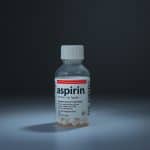Ditch The Myth: Why High Cholesterol Is Dangerous for Your Health

Where Did the “High Cholesterol is Good” Myth Come From?
The myth that high cholesterol might be “good” originated from misinterpretations of early observational studies, industry-influenced messaging, and confusion over the roles of different cholesterol types. Some early reports noted that cholesterol is essential for brain and hormone production, which led fringe groups to suggest more cholesterol is always better. But decades of rigorous science prove the opposite: elevated LDL cholesterol is a causal driver of atherosclerotic cardiovascular disease (ASCVD).
Why is the Myth Wrong?
Large-scale randomized controlled trials and genetic studies have consistently shown that lowering LDL cholesterol reduces heart attack, stroke, and cardiovascular mortality. The relationship is linear: lower LDL equals lower risk. No credible study supports the idea that high LDL is protective.
What Does Cholesterol Do to Blood Vessels?
LDL particles penetrate the vessel wall, deposit cholesterol, and trigger inflammation. This leads to plaque buildup, arterial stiffening, and increased risk of rupture. ApoB-containing lipoproteins are especially harmful. Over time, this process fuels heart attacks and strokes—the number one cause of death worldwide.
“But the Brain Needs Cholesterol” — Why That’s Misleading
It’s true the brain contains a lot of cholesterol, but the brain makes its own cholesterol locally. Blood cholesterol does not cross the blood-brain barrier in significant amounts. Lowering blood LDL does not deprive the brain of cholesterol. Clinical studies show no harmful effect of statins on brain function, and some even suggest protective effects against dementia.
Why Lifestyle Changes Alone Are Not Always Enough
Diet and exercise are foundational for lowering cholesterol, but genetics often play a dominant role. Familial hypercholesterolemia, for example, can cause sky-high LDL even with a perfect diet. For many patients, lifestyle lowers LDL modestly, but medication is required to achieve target levels.
Alcohol and Cholesterol
Some older studies suggested moderate alcohol raised HDL cholesterol, leading to the “red wine is good for you” myth. But updated research shows alcohol also raises triglycerides, ApoB, and blood pressure while increasing cancer and liver disease risk. Alcohol is not a heart-healthy cholesterol strategy.
Why Statins Are First-Line After Lifestyle Changes
Statins are the cornerstone therapy because they not only reduce LDL cholesterol but also lower ASCVD risk across diverse populations. The 2022 USPSTF guidelines recommend statins for adults at increased risk, reinforcing decades of evidence.
What Do Statins Do Beyond Lowering Cholesterol?
Statins have pleiotropic effects: they reduce vascular inflammation, improve endothelial function, and stabilize plaque. That’s why clinical outcomes (heart attacks, strokes) improve even more than LDL reduction alone would predict.
Do Statins Cause Memory Problems?
In 2012, the FDA noted rare, reversible reports of memory issues with statins. However, large systematic reviews and trials—including a 2021 JACC study—show no consistent evidence of cognitive harm. In fact, statins may lower dementia risk through vascular protection.
Muscle Injury and Rhabdomyolysis
Muscle aches (myalgias) occur in up to 5–10% of patients, though placebo-controlled trials suggest the true rate is much lower. Serious muscle injury is rare: myopathy occurs in about 1 in 10,000 patient-years, and rhabdomyolysis about 1 in 100,000. According to the 2019 AHA scientific statement, the benefits far outweigh these rare risks.
Is CoQ10 Really Useful with Statins?
The idea came from the fact that statins slightly lower CoQ10 levels, leading to speculation it might reduce muscle symptoms. However, evidence is mixed. A 2022 meta-analysis found no consistent benefit. CoQ10 is not routinely recommended, though some patients report subjective improvement.
Why Different LDL Targets? (100, 70, 55 mg/dL)
Targets depend on risk. Guidelines from the 2018 ACC/AHA and 2019 ESC/EAS recommend:
- <100 mg/dL for moderate risk
- <70 mg/dL for high risk
- <55 mg/dL for very high risk (recent heart attack, multiple risk factors)
These targets reflect overwhelming evidence: the lower the LDL, the lower the ASCVD risk.
Conclusion
The idea that high cholesterol is “good” is a dangerous myth. Cholesterol is vital, but too much in the blood is toxic to arteries. Lifestyle change is essential, but not always sufficient. Statins remain the most effective, well-studied therapy to reduce heart attacks and strokes, and their safety record is strong. The truth is clear: lowering LDL saves lives.
References
- US Preventive Services Task Force. Statin Use for the Primary Prevention of Cardiovascular Disease in Adults. JAMA. 2022;328(8):746-753. Read here
- Cheeley KC, Maki KC, et al. NLA scientific statement on statin intolerance. Journal of Clinical Lipidology. 2022. Read here
- Newman CB, Preiss D, Tobert JA, et al. Statin Safety and Associated Adverse Events. Arterioscler Thromb Vasc Biol. 2019;39(2):e38–e81. Read here
- Zhou Z, et al. Statin Therapy on Cognitive Decline and Incident Dementia. J Am Coll Cardiol. 2021;78(1):49–63. Read here
- Wei H, Xin X, Zhang J, et al. Effects of Coenzyme Q10 on Statin-Induced Myopathy: A Meta-Analysis. Ir J Med Sci. 2022;191(2):719–725. Read here
- Grundy SM, et al. 2018 ACC/AHA Guideline on the Management of Blood Cholesterol. Circulation. 2019;139:e1082–e1143. Read here
- Mach F, et al. 2019 ESC/EAS Guidelines for the Management of Dyslipidemias. Eur Heart J. 2020;41:111–188. Read here
Life in Balance MD is led by Dr. Amine Segueni, a board-certified physician dedicated to delivering clear, evidence-based health insights. His passion is helping readers separate facts from myths to make smarter, healthier choices. Content is for educational purposes only and not a substitute for medical advice.






Pingback: Alzheimer’s Prevention: The Science-Backed Guide to Protecting Your Brain
Pingback: Ditch the Myth: The Evidence-Based Truth About Seed Oils, Inflammation, and Your Health -